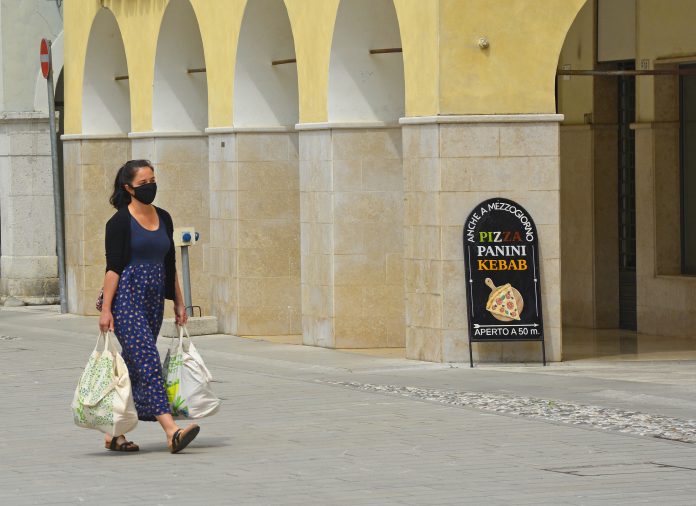Anna Lisa Boni, Secretary General, EUROCITIES enlightens us on the salient points when it comes to re-imagining our urban future in light of the COVID-19 pandemic
The COVID-19 pandemic has quickly morphed from a health crisis into an economic one with violent shocks to our labour markets, and it threatens to evolve into a social and societal crisis with new groups of people entering into poverty and social exclusion.
Recovery from this unprecedented state of affairs will be long and uncertain, and it has already hit our cities hard, but it also offers an opportunity for systemic change. A fresh start that would offer a more inclusive, equal and sustainable Europe.
Rapid response, now what?
A recent OECD analysis shows that the impact of the pandemic has been strongly asymmetric, both within and across countries, with larger cities particularly hard hit.
One of the main concerns for large cities is the impact on local labour markets with job losses estimated at between 15 – 30%. In addition, given that many large cities are hubs of global value chains and thrive on tourism, the sectoral disruption of job losses and knock-on economic effects will be felt very differently across and within different cities.
Cities like Amsterdam have estimated that the impact of COVID-19 on the local economy during lockdown triggers a GDP loss of €1.6 billion per month.
The municipality of Florence has said it will suffer a €200 million deficit in its city budget and, at the metropolitan level, the impact on tourism revenue will be over €1 billion, with trade in exports taking an even bigger knock.
As we are moving past the emergency stage of this crisis, many cities are pro-actively setting out measures to mitigate the social and economic effects of the COVID-19 crisis on people, jobs, businesses, the local economy and equality and inclusion in cities.
Lyon, for example, created an emergency fund of €100 million to support local SMEs until the end of June, and Berlin, which has already matched this amount is ready to extend it further still.
Cities like Ghent and Lisbon even provide direct financial aid to the most vulnerable families.
The new urban poor
The social impacts of this crisis are also already evident in our cities. Besides the number of people seeking social assistance rising, we see increases in those seeking food aid and basic material needs.
City administrations have been on the front lines in trying to ensure social inclusion and social cohesion are not put at further risk and have been stepping up their responsibility for vulnerable citizens. Nonetheless, new groups of people – ‘the new urban poor’ – are falling through the cracks.
Students and young people are particularly vulnerable to unemployment or not finding internships or apprenticeships to complete their studies. Freelance workers and the self-employed are not always being covered by the support measures at the national level. Home-schooling is deepening the digital divide in education and widening the inequalities for children in low-income families. People in vulnerable groups are becoming even more vulnerable, especially the elderly, homeless, undocumented migrants and victims of domestic violence. They need targeted support now more than ever.
Cities on the frontline of managing this crisis
Many cities health and social services have been stretched far beyond limits in trying to meet new and urgent needs. At EUROCITIES, we have collected such examples and publishing them on our new platform for live updates from cities. To share just a few of these:
- Helsinki, for example, set up a helpline where volunteers call all 27,000 residents above the age of 80 to propose practical help.
- In Bologna, elderly, disabled and other people who need assistance get home delivery of groceries and medicines.
- London reserved hundreds of hotel rooms to give some homeless people the possibility to self-isolate.
- Madrid has established public-private partnerships to provide families in need with prepaid cards to buy food and basic necessities.
- Leipzig’s emergency shelters provide free breakfast, lunch and supper. Additionally, a ‘garden fence for homeless people’ offers a space where food, clothes and sanitary products can be donated.
- Tallinn offers pupils in need a free daily school lunch.
- Dusseldorf enlarged its accommodation facilities, shelters and protection services for women and children in need.
- The Hague distributed 330 laptops to families with low income.
- Nuremberg is using a mobile guide for refugees and migrants, to spread information tailored to the local context.
Get the recovery right for a brighter urban future
All these extra activities come at a cost and municipal budgets have already been substantially squeezed. Increasing demand on social and healthcare services, targeted support for the most vulnerable groups, SMEs and newly unemployed people all lead to more public spending. Coupled with less revenue from taxation and tourism, these early efforts to respond to the crisis put city administrations at risk of exacerbating public debt.
Responding correctly to this crisis means thinking about the longer-term financial impact on city governments and ensuring they can commit the necessary resources to help people and businesses.
To do this, cities need support from national governments and European institutions, including better access to and more flexible use of existing European Union (EU) funds and more direct use of EU resources that have recently been made available, such as the Corona Response Investment Initiative. Moreover, working with cities should be an integral component of the EU’s recovery plan and future funding.
By doing this, we have an opportunity to re-imagine public life and ensure that COVID-19 instead becomes a catalyst for positive change for more inclusive cities. With the right investments, we can accelerate the digital and green transitions, creating new jobs. We can make our cities more resilient too, by ensuring that some of the emergency measures currently enforced become more permanent, such as by continuing to offer access to digital public services. And we can start to build a more social Europe by recognising that social services are essential, by increasing investment to help the most vulnerable groups.
So let’s emerge stronger from this crisis, let’s work together, and let’s create that brighter urban future.
Contributor Details
Editor's Recommended Articles
-
Must Read >> Cities are partners in a common future for Europe















